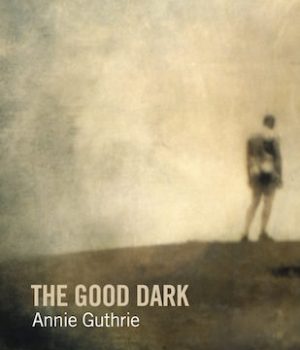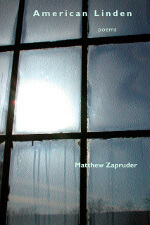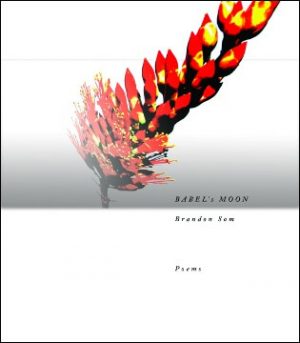gentlessness
by Dan Beachy-Quick
$19.95
“Beachy-Quick (Circle’s Apprentice) guides the reader on a startlingly engaged and astute trip through the history of Western poetic form and voice, from the pre-classical age through modernism. Defining ‘gentlessness’ as ‘a word/ to describe that/ which must deny itself/ to exist./ …a word I made up/ to describe/ to myself/ myself and other fields,’ Beachy-Quick moves through the ‘literary epochs’ that have preceded our own, beginning with the primitive, stripped-down ‘monadism: a proem’ before running through elements of the Homeric epics and Platonic dualisms in ‘heroisms.’ The ‘puritanisms’ section features instructions and aphorisms for living in beauty, while in ‘overtakeslessness’ he considers work, fear, and W.C. Williams’s ‘The Red Wheelbarrow.’ He switches gears in ‘romanticisms,’ elevating his language in a set of sonnets that somehow manages to reference Duchamp (‘I saw the nude bride lean back in the grass,/ Legs askance, one hand holding above her head/ A lantern’), and he echoes Pound and Eliot in the final section, ‘modernisms.’ Even the sonnets show a serious, scholarly, yet playful resolve to be faithful to their own history. Beachy-Quick’s understated humor, intelligence, and regard for big ideas shine through the whole of Western poetic history, shaped by his postmodern (and occasionally ironic and self-deprecating) voice. Such an accomplishment is rarely achieved with this much grace.”
— Publishers Weekly STARRED review
Format: paperback
Out of stock
“Summer Poetry Reads” in the Boston Review
“Beachy-Quick (Circle’s Apprentice) guides the reader on a startlingly engaged and astute trip through the history of Western poetic form and voice, from the pre-classical age through modernism. Defining ‘gentlessness’ as ‘a word/ to describe that/ which must deny itself/ to exist./ …a word I made up/ to describe/ to myself/ myself and other fields,’ Beachy-Quick moves through the ‘literary epochs’ that have preceded our own, beginning with the primitive, stripped-down ‘monadism: a proem’ before running through elements of the Homeric epics and Platonic dualisms in ‘heroisms.’ The ‘puritanisms’ section features instructions and aphorisms for living in beauty, while in ‘overtakeslessness’ he considers work, fear, and W.C. Williams’s ‘The Red Wheelbarrow.’ He switches gears in ‘romanticisms,’ elevating his language in a set of sonnets that somehow manages to reference Duchamp (‘I saw the nude bride lean back in the grass,/ Legs askance, one hand holding above her head/ A lantern’), and he echoes Pound and Eliot in the final section, ‘modernisms.’ Even the sonnets show a serious, scholarly, yet playful resolve to be faithful to their own history. Beachy-Quick’s understated humor, intelligence, and regard for big ideas shine through the whole of Western poetic history, shaped by his postmodern (and occasionally ironic and self-deprecating) voice. Such an accomplishment is rarely achieved with this much grace.”
— Publishers Weekly STARRED review
Describing his new book as “an intimate primer to a history of literary epochs,” Dan Beachy-Quick summons his belief that tradition and experiment are mutually embracing, and his curiosity about humble forms of song and rhyme as figures of enchantment that induce the most primal modes of perception. gentlessness is the work of a poetic archaeologist who finds relict layers of meaning still alive in traditional measures and forms.
“By means both gentle and less than gentle, these poems make space for us to consider our ideas of ourselves, of the divine, of our cultural and literary inheritances, and the language we use to create and hold them.… Uncannily beautiful.”
— Mary Szybist
“These are lines to be read in all the stillness you can find.”
— Jean Valentine
Additional information
| Weight | .4 lbs |
|---|---|
| Dimensions | 6 × .5 × 9 in |
from “Overtakelessness”
These songs are skeptic’s songs—
the pansies applaud
by quickly closing
their faces—
How break the spell? Say,
I’m weary. Say,
the blade’s edge grew dull.
Say, the sound I am
listening to is too small.
How is it I can speak
all these words with my mouth
pressed against the ground?
I have spent a life in the field
turning it over to learn
how to turn myself over and lie
in the field face down.






